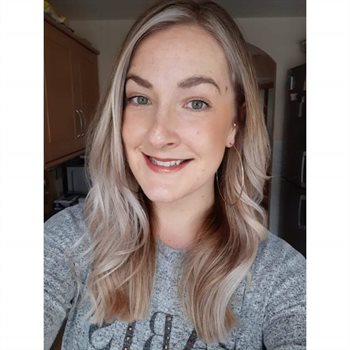Staffnet+ >
Stepping in to a new role to save lives
Stepping in to a new role to save lives
Since August of 2019, Kirsty Lane has worked for the Council Tax and Benefit department at Cardiff Council. Whilst the department continued to be busy since the outbreak of COVID-19, Kirsty was approached by her manager after being selected to join the growing Cardiff and Vale contact tracing team at the beginning of May.
“As soon as my manager asked me to get involved, I jumped at the opportunity. I felt really privileged to be able to help people to stay safe and to reassure them in these tricky times.”
Within a week of expressing her interest, Kirsty was up and running as part of the Cardiff and Vale contact tracing team. Firstly, the team received training from Public Health Wales on a range of different modules around the COVID-19 virus itself, what contact tracing involves and the best advice to give people over the phone.
“I thought the training was really helpful and it gave me lots of confidence to get going. After completing it, I felt pleased about my new role and prepared for lots of different situations that may arise.”
All local authorities in Wales are working to introduce the NHS Wales Test, Trace, Protect service. Acting in partnership with the Welsh Government and Public Health Wales, the Vale of Glamorgan Council has redeployed a number of its staff to work as contact tracers, contacting those in the community that have tested positive for COVID-19 as well as those who have come into close contact with them.
 “As a contact tracer, I work 37 hours a week, which includes five days of eight-hour shifts. We do either 8am-4pm or 12pm-8pm and this tends to rotate each week. I’ve found it to be really fulfilling so far because of how vital this work is in our fight against the virus. You get to build nice relationships with people you are calling and checking in on each day as you guide them through the process of self-isolating. For some people, who are feeling lonely, it has been great to provide them with this much-needed human interaction as well as plenty of practical and moral support.”
“As a contact tracer, I work 37 hours a week, which includes five days of eight-hour shifts. We do either 8am-4pm or 12pm-8pm and this tends to rotate each week. I’ve found it to be really fulfilling so far because of how vital this work is in our fight against the virus. You get to build nice relationships with people you are calling and checking in on each day as you guide them through the process of self-isolating. For some people, who are feeling lonely, it has been great to provide them with this much-needed human interaction as well as plenty of practical and moral support.”
“As you can imagine, it can sometimes be tough to call people and ask them to self-isolate for up to fourteen days. Most of the people I’ve spoken to have actually been expecting the call, with a lots of friends and family of carers and medical professionals being contacted so far. But it’s not all blue skies. Some people do get frustrated about not being able to know who the person they’ve come into contact is, and others take time to get over the initial shock that comes when hearing the news that they need to self-isolate. After all, it impacts some people harder than others. Like those who may be living in communal residences with shared outdoor spaces, who can no longer go outside.”
“Overall though, the resounding public response has been understanding and people are happy to do their bit. We understand that self-isolating can be a big ask, but if we don’t collectively get on board with the process now, then we’re going to see more deaths and more suffering in the future. We know that it’s not ideal, but just two weeks self-isolating can make a huge difference to protecting people and saving lives.”